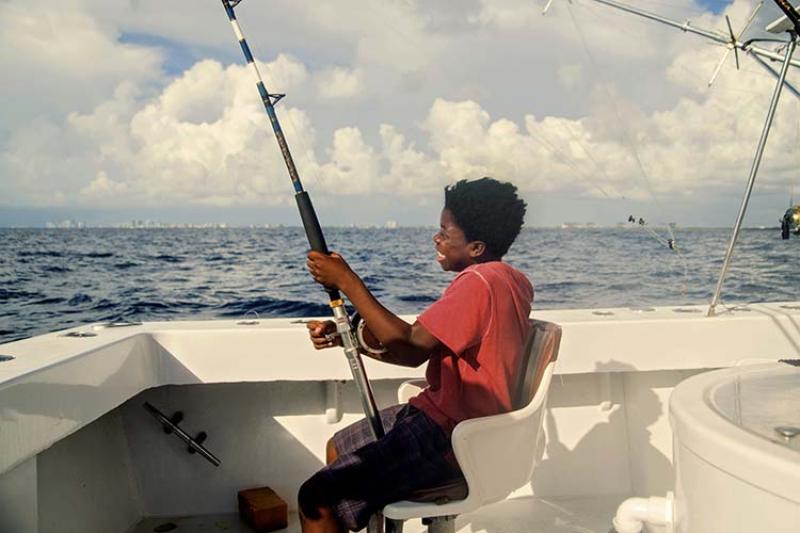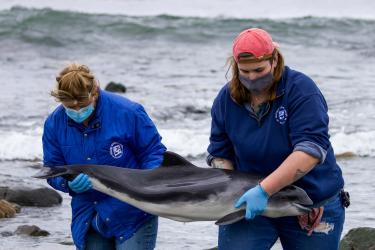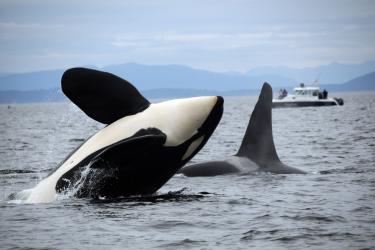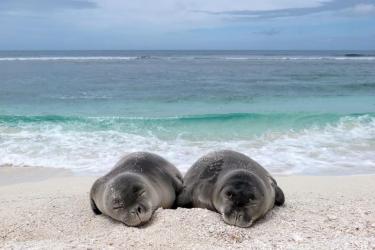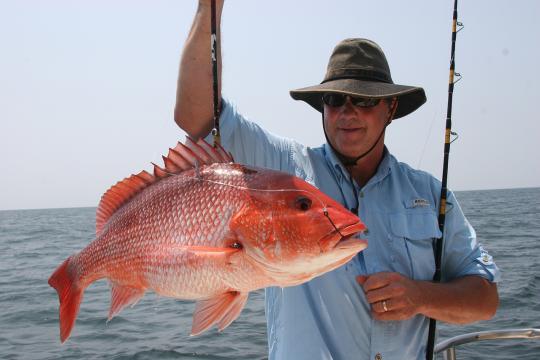NOAA Fisheries’ Marine Recreational Information Program published its updated implementation plan, which highlights 2021 milestones and 2022 priorities. Since the first MRIP Implementation Plan was adopted in 2008, we have published annual updates. They describe the program’s approach toward providing high-quality recreational fishing data that meet science and management needs.
The Marine Recreational Information Program is the state-regional-federal partnership that develops, implements, and continually improves a national network of recreational fishing surveys to estimate total recreational catch. These estimates are critical to the assessment and management of U.S. fish stocks. They could not be produced without anglers, for-hire captains, state agencies, interstate marine fisheries commissions, and regional fishery management councils. Working through Regional Implementation Teams, the program’s partners have contributed to the accomplishments and informed the priorities described in this plan.
The program’s 2022 priorities are also informed by the Modernizing Recreational Fisheries Management Act, or Modern Fish Act, of 2018. “The Modern Fish Act helps guide the Marine Recreational Information Program as it builds on its foundation of sound science and state-regional-federal collaboration,” said Dr. Richard Cody, chief of the Office of Science and Technology’s Fisheries Statistics Division. “It reaffirms the program’s commitment to enhancing its existing state-federal partnerships and responding to recommendations from two reviews by the National Academies of Sciences, Engineering, and Medicine. These provisions will be a key part of our work in 2022, and will ultimately support the program’s ongoing work to implement statistically sound surveys and produce high-quality catch and effort estimates in collaboration with our state and regional partners.”
For a complete list of the program’s goals, accomplishments, and priorities, read our 2022 Implementation Plan Update (PDF, 15 pages).
2021 Accomplishments
Mitigated the Impacts of COVID-19
The COVID-19 pandemic disrupted the in-person survey that collects catch-per-trip data from anglers. However, its overall impact on recreational data collection was lower than first expected. The program was able to fill gaps in 2020 catch rate data with data collected in 2018 and 2019, and publish its recreational fishing estimates according to schedule.
Responded to the Modern Fish Act
In accordance with the provisions of the act, NOAA Fisheries prepared two reports for Congress. The first describes the program’s plans to enhance state-federal data collection partnerships. The second describes the program’s progress toward addressing the recommendations of a 2017 National Academies review. The program also worked with the National Academies to complete a new review of data and management strategies for the in-season management of recreational fisheries with annual catch limits.
Established Recreational Fishing Survey and Data Standards
These standards promote data quality, consistency, and comparability across data collection programs. Those standards that aren’t already in use will be implemented by April 2023. As part of this phased implementation, the program developed an MRIP Data User Handbook. We also developed two new queries that preview standards-related changes to the way our estimates are presented.
Conducted Research to Evaluate Potential Improvements to Data Collection Programs
This includes:
- Initiating an analysis of non-sampling error in the state and federal surveys administered in the Gulf of Mexico
- Completing an analysis of non-response bias in the Fishing Effort Survey
- Implementing a study to evaluate coverage bias in the Access Point Angler Intercept Survey
Administered $3 Million in Modern Fish Act Investment Funds
By increasing state sampling levels in the Atlantic, Pacific, and Gulf of Mexico, the funds are meant to improve the precision of regional catch estimates.
Developed a Suite of Education and Outreach Materials
These materials serve partners, customers, and the recreational fishing community. They include:
- A brochure that answers frequently asked questions about our work
- An infographic that illustrates the role of for-hire data in science and management
- An "Ask MRIP" web series that dives into the science and statistics that support sustainable fisheries
- A presentation that explains how we turn data from the recreational fishing community into estimates of total recreational catch
2022 Priorities
The Marine Recreational Information Program’s upcoming priorities build on several existing efforts.
Completion of a New Strategic Plan
This collaborative process will build on the 2017-2022 MRIP Strategic Plan to define the goals, strategies, and tactics we will work toward over the next 5 years.
Response to the Modern Fish Act
NOAA Fisheries will prepare a report to Congress detailing the program’s plans to address the recommendations of the National Academies’ 2021 report, Data and Management Strategies for Recreational Fisheries with Annual Catch Limits.
Implementation of Recreational Fishing Survey and Data Standards
The program will host a Data User Seminar Series and develop a database for the documentation survey administrators must submit to meet the standards.
Certification and Transition Planning for State and Federal Data Collection Programs
This includes the certification of new, modified, and existing survey designs, such as NOAA Fisheries’ For-Hire Survey and state surveys in California, Oregon, and Washington. This also includes the completion of a transition plan for four state programs in the Gulf of Mexico.
Improvements to Survey Design, Implementation, and Administration
This includes research to evaluate alternative survey designs and potential sources of bias.
Monitoring of Impacts from COVID-19
At-sea sampling remains suspended in many states, and additional interruptions to data collection are possible. We will continue to work with our partners to monitor such interruptions and ensure the continuity of our estimates.
Dialogue with Partners, Customers, and Recreational Fishing Community
This includes:
- Developing up-to-date, easily digestible information about the program, its operations, and its improvements
- Hosting listening sessions with anglers and for-hire captains
- Maintaining our engagement in angler education programs
